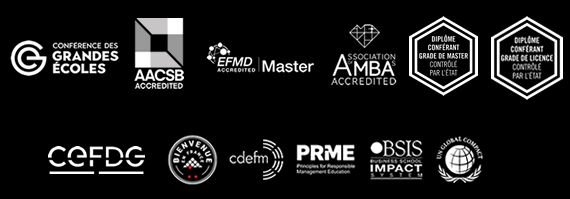Entitled ‘Artificial Intelligence and its Societal Challenges’, the cross-disciplinary Hackathon brought together 1,600 fourth-year students, including those from EMLV. During this educational initiative, students addressed the challenges of Artificial Intelligence and its impact on society, such as employment, health, the environment and information.
The Hackathon had two objectives: to understand how AI is perceived in society and to identify innovative solutions to concrete problems. To this end, the cross-disciplinary teams proposed innovative solutions to highlight the importance of inclusion, sustainability and ethics in AI practices and uses.
Cross-disciplinary AI Hackathon: the programme
The week’s programme was designed to encourage critical thinking and creativity. Students took part in activities based on collective intelligence, critical analysis and documentary research.
The teams spent the first few days immersing themselves in the subject, choosing their issues and conducting field studies to understand the realities on the ground.
After refining their solutions, focusing on innovation and positive impact, the teams were assessed during the final oral presentation at the end of the week. This evaluation was based on various criteria, such as understanding of the subject, relevance of proposals, and ability to defend their arguments with relevant sources.
In particular, emphasis was placed on systemic vision, critical analysis, and the ability to articulate their thoughts with an innovative solution.
Results and prospects for artificial intelligence and associated societal challenges
Numerous judges from the cluster’s partner companies, representing various sectors, came together to listen to the students during their final presentations.
They appreciated the quality of the students’ work and their ability to delve deeply into a new subject in a short period of time, thanks to the stimulating educational support offered by the Hackathon format.






















